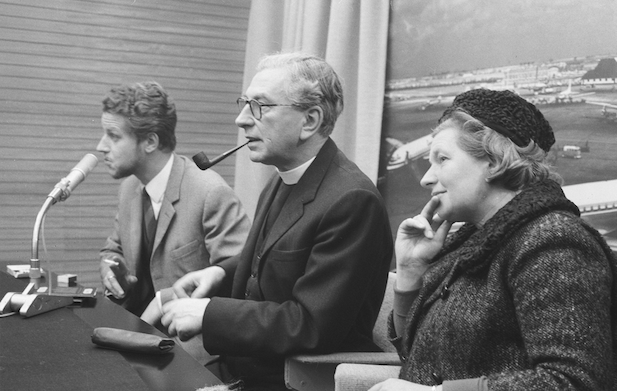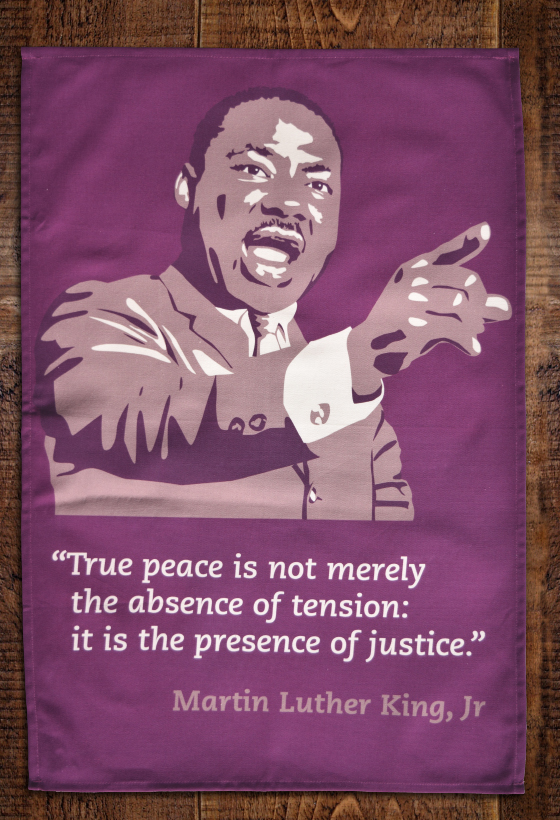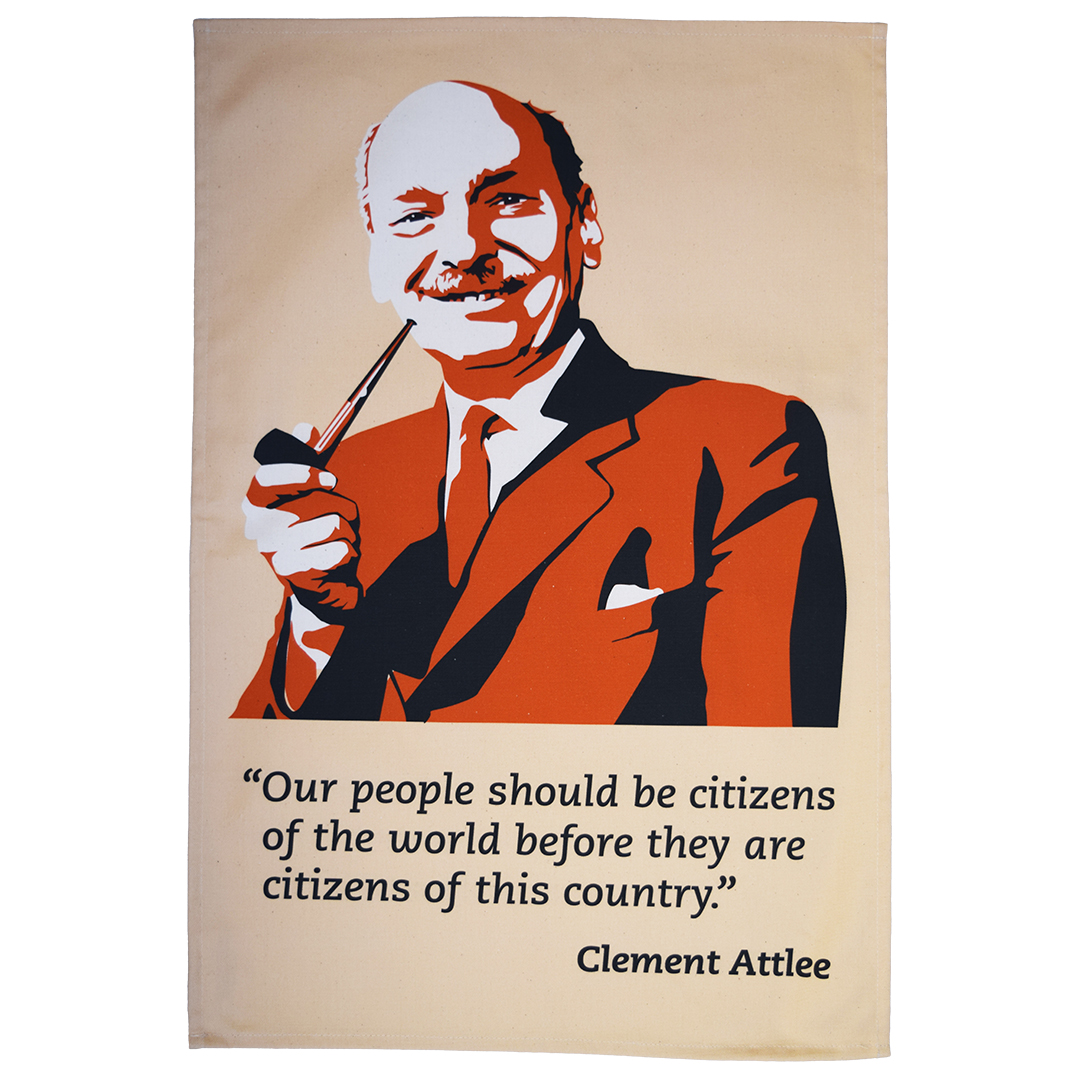We use cookies to make your experience better. To comply with the e-Privacy rules, we need to ask for your consent to use non-essential cookies (such as analytics and marketing). You can allow or decline these cookies. Essential cookies (for things like basket and checkout) will always be used. For more details, please see our Privacy Policy.
Keeping the Faith: Christian Socialism in the 20th Century
"Informed opposition to apartheid... owes as much to John Collins and Christian Action as informed opposition to the slave trade owed to Wilberforce." - Archbishop Trevor Huddleston

John Collins (centre) during a press conference in Schipol for the International Defence and Aid Fund for Southern Africa. (Image by Joost Evers)
Christianity, and religion in general, has often been associated with conservative politics – and not without reason. Plenty of foulness in history has been blessed by popes and archbishops.
But the path of faith has turned in both directions. Countless people have come to truly radical politics by way of their God(s).
Sojourner Truth, Mary Wollstonecraft, Gandhi, Thoreau, Kate Sheppard, Martin Luther King Jr - the list goes on!
It’s impossible to understand the politics of these figures without mentioning their religious beliefs.
A Baptist minister, Martin Luther King Jr. was inspired by his Christian beliefs to fight for racial justice.
Click to view our Martin Luther King tea towel
In 20th century Britain, this connection between religion and radical politics is best represented by a fella called John Collins - born on this day in 1905.
An Anglican priest, Collins was a co-founder of the Campaign for Nuclear Disarmament and a leading voice in the British struggle against apartheid South Africa.
Born in Kent and educated at Cambridge, Collins became a socialist amid the mass poverty and inequality of the
Great Depression, when he joined the UK Labour Party.
He enlisted as an Air Force chaplain at the outbreak of World War Two, where he found himself in trouble with his superiors for continually inviting socialists to speak at his base.
Soon after peace returned in 1945, Labour leader
Clement Attlee swept to victory in a landslide general election.
Like John Collins, Clement Attlee was both a Christian and a radical socialist.
Click to view our Clement Attlee tea towel
Like John Collins, Attlee belonged to the Christian socialist tradition, which has always been a powerful force on the British Left.
In 1948, Attlee had Collins appointed a canon of St Paul’s Cathedral in London.
Now you might think that a prominent religious role like this would stifle Collins’s radical instincts – but apparently not!
Collins had already founded Christian Action, a charity which campaigned against homelessness and capital punishment. And in 1951, Collins was a co-founder of the charity War on Want.
He also became an important activist in the international struggle to end apartheid in South Africa.
In 1956, he committed Christian Action to fundraise for anti-apartheid militants accused of treason in South Africa.
The Defence and Aid Fund for Southern Africa was born from this effort, which raised over £75,000 for the defendants at the infamous Johannesburg Treason Trial of 1956 –
Nelson Mandela among them.
John Collins, Peggy Duff and Bertrand Russell were among the founding members of the Campaign for Nuclear Disarmament.
Click to view our CND tea towel
One of Collins’s other great causes was nuclear disarmament.
Along with
Peggy Duff, Bertrand Russell and others, Collins established the still-ongoing Campaign for Nuclear Disarmament, serving as its very first chairman.
Right up until his death in 1982, John Collins threw himself into the fight for human equality, dignity, and peace – not just in Britain, but around the whole world.
He drew on the Christian ideals of fraternity and goodwill to inspire him in these struggles.
Religious faith is not the only way to a politics of emancipation – and a politics of emancipation is not the only outcome of religious faith.
But it's clear that when the two come together, they have forged some of the great figures of our shared radical past.






